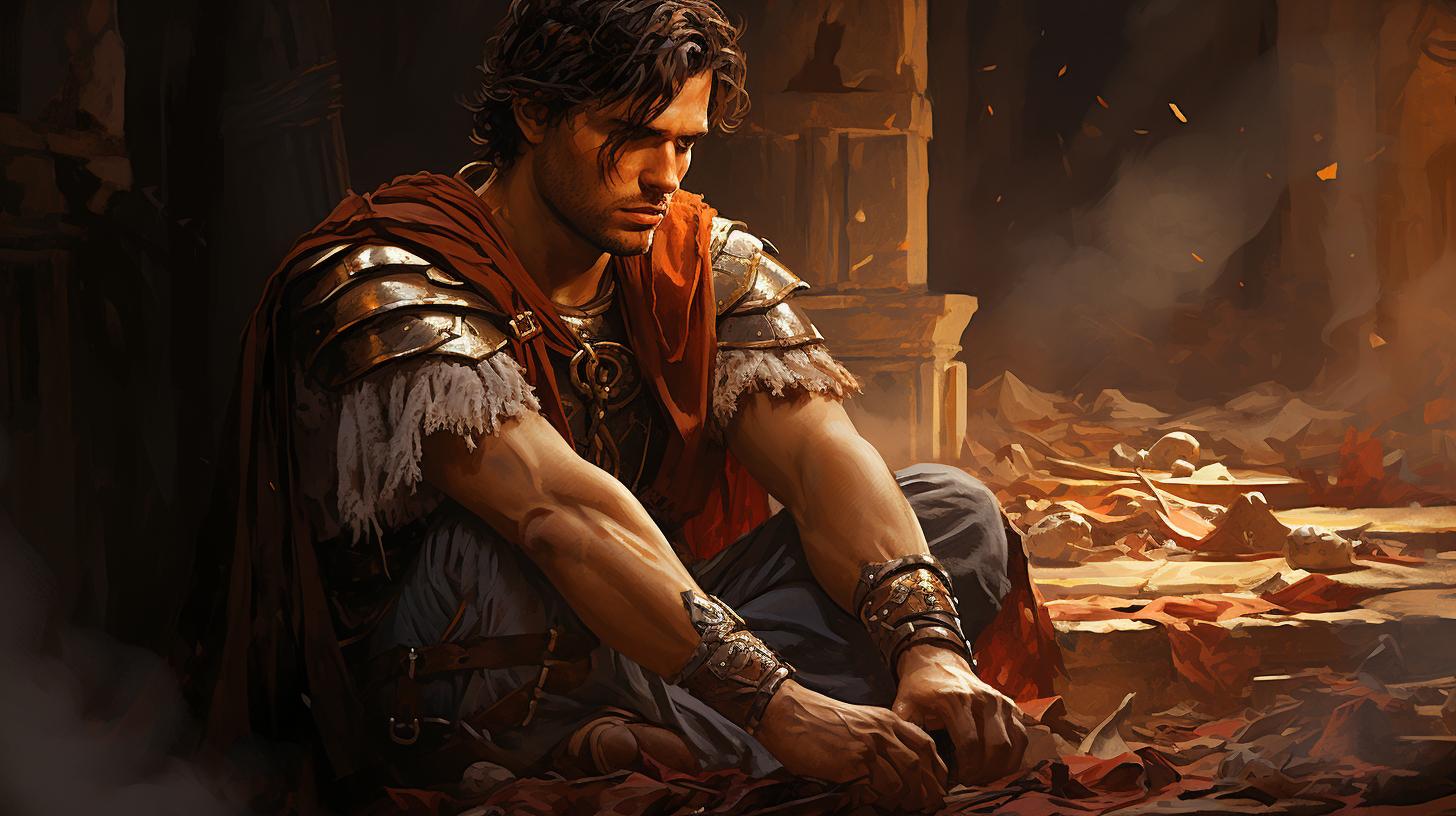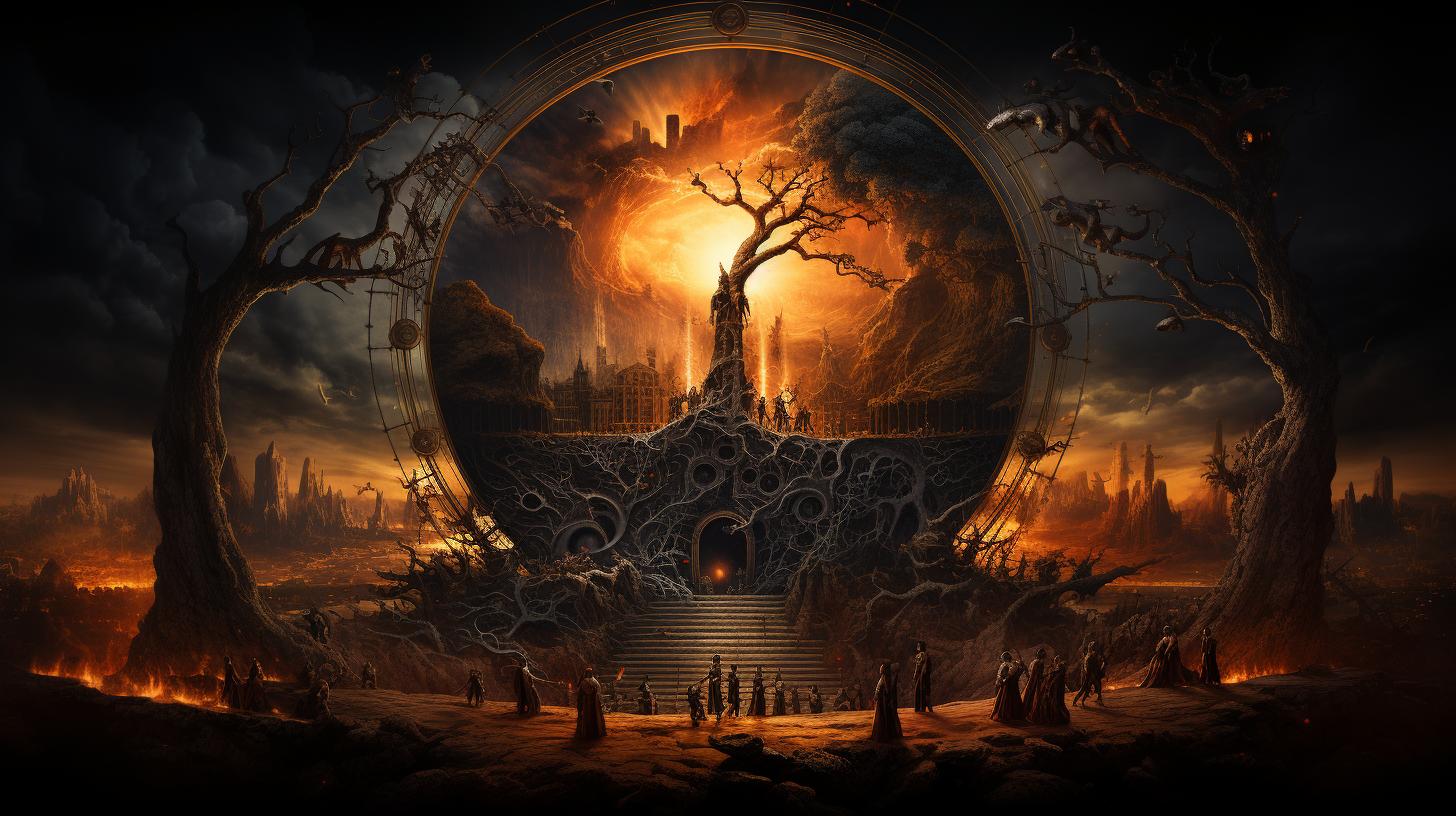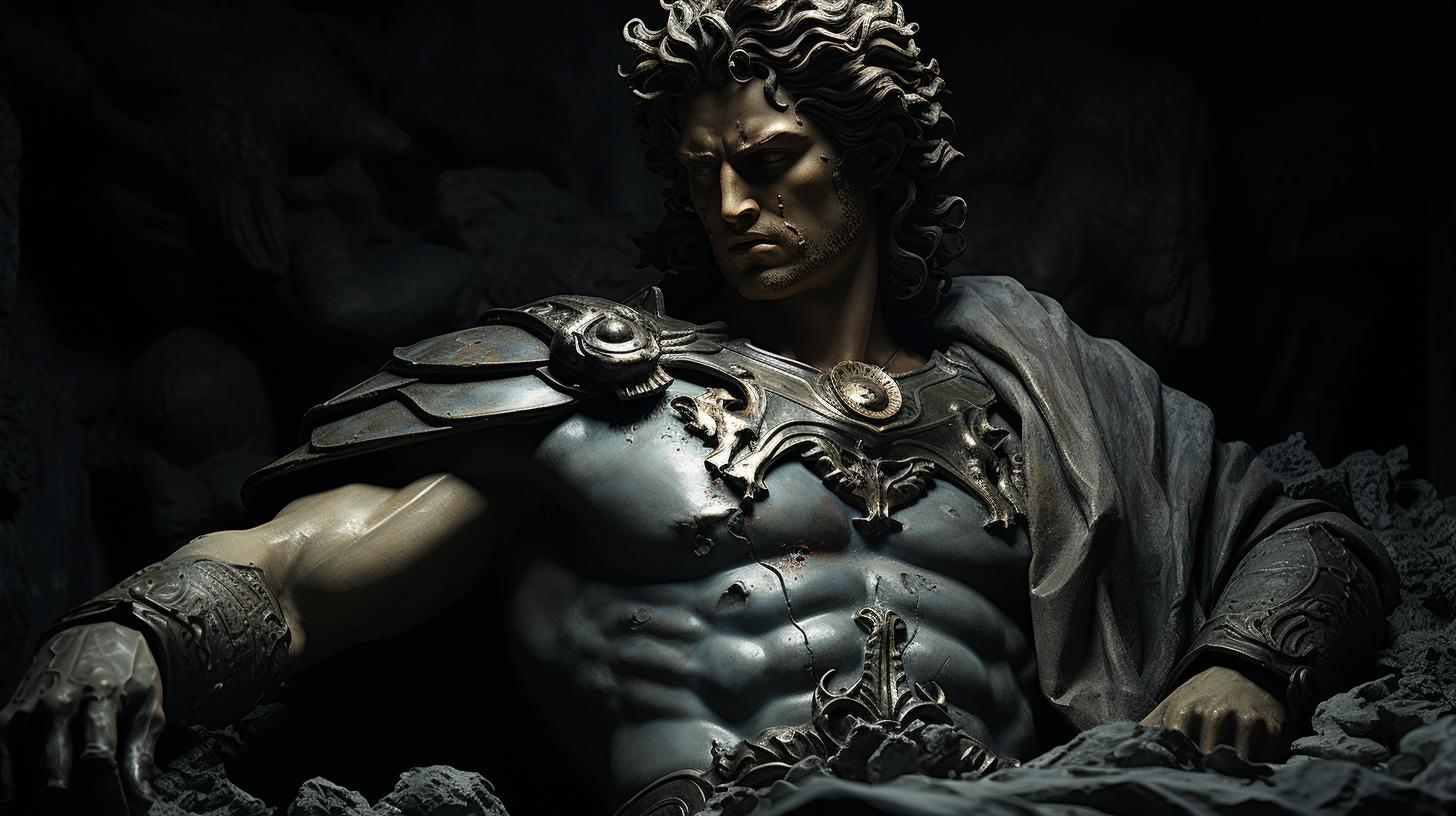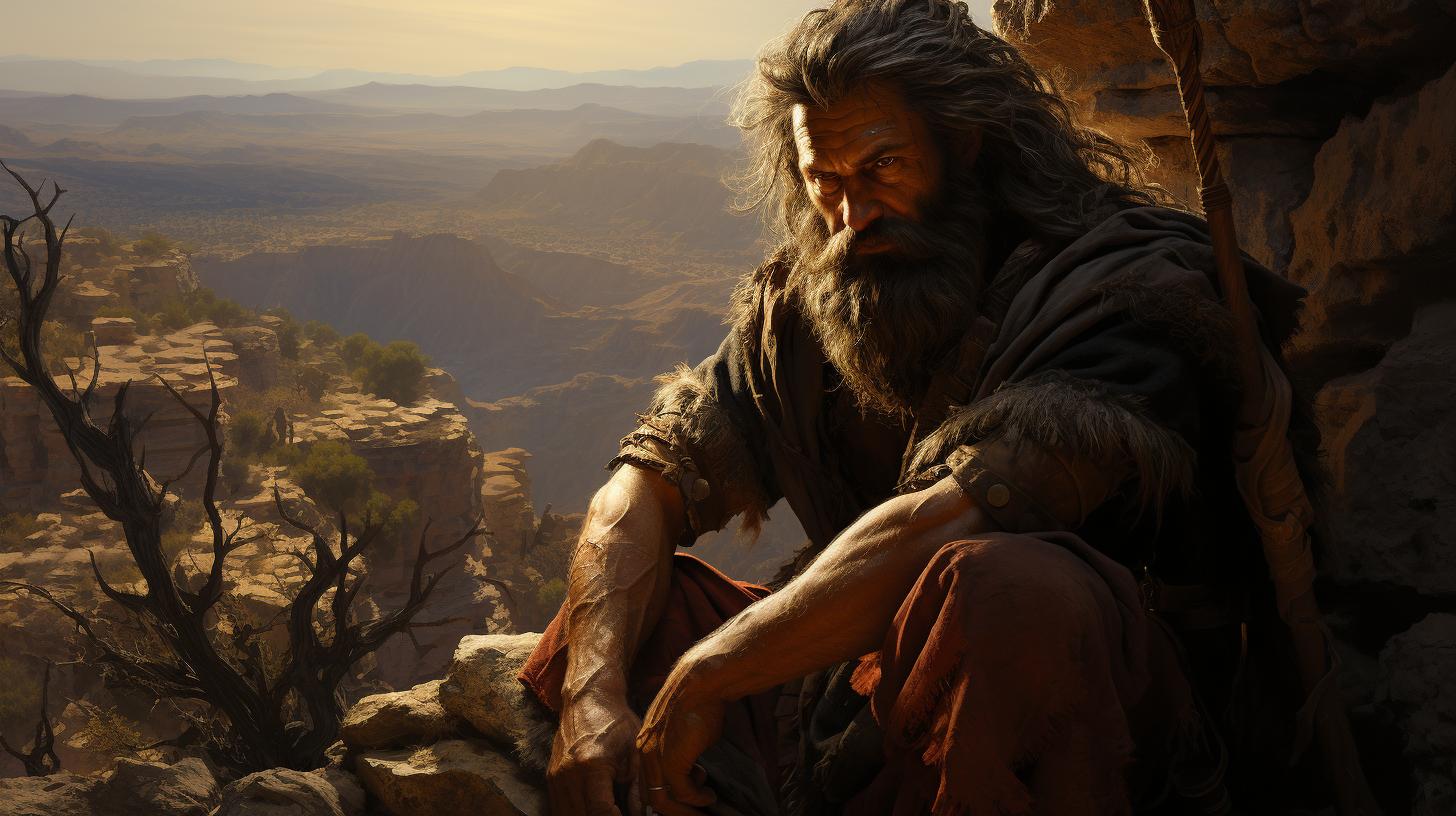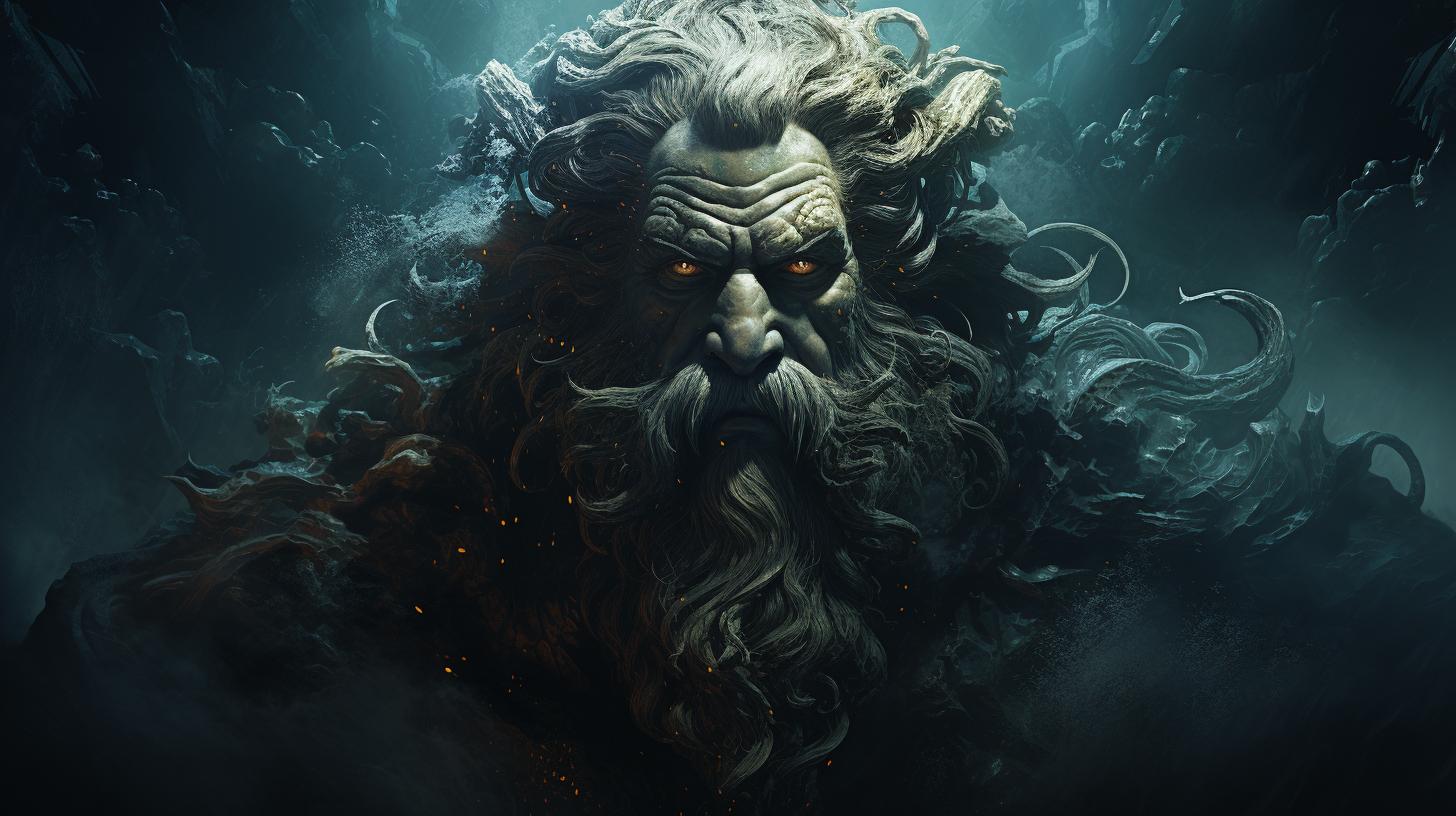Exploring the Legendary Greek Mythology of Patroclus
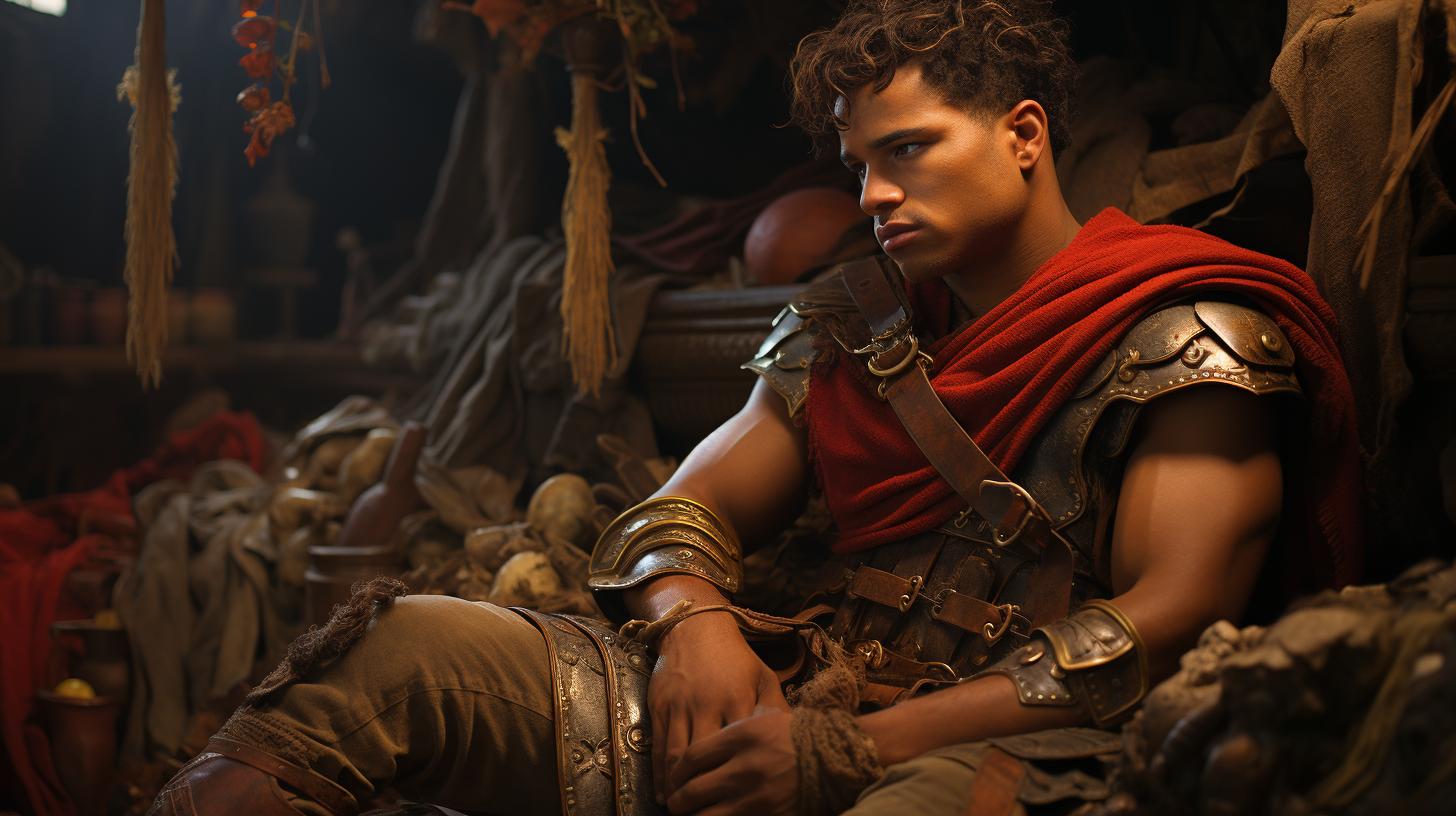
Patroclus, a crucial figure in Greek mythology, played a significant role in the legendary Trojan War. Known for his deep friendship with Achilles, one of the renowned Greek heroes, Patroclus influenced and served as a model to Achilles. During the war, Patroclus took command of the Greek warriors and led them into battle against the Trojans until his tragic death at the hands of Prince Hector. This event prompted Achilles to seek vengeance and ultimately had a lasting impact on the course of the Trojan War.
Additionally, various interpretations exist regarding the relationship between Achilles and Patroclus, and debates continue about the location and historical accuracy of Troy.
The Mythology of Patroclus
Patroclus, a central figure in Greek mythology, is best known for his role in the legendary Trojan War. As depicted in various literary works, including Homer’s Iliad, the war was triggered by the abduction of Helen, the wife of Menelaus, the king of Sparta, by Paris of Troy.
Lasting for ten long years, the conflict would shape the history and mythology of ancient Greece.
Within the context of the war, Patroclus emerges as a significant character. He was renowned for his close friendship and intimate companionship with Achilles, one of the most prominent Greek heroes of the Trojan War.
Their bond was depicted as deep and powerful, regarded as one of the most enduring and influential relationships in Greek mythology.
Patroclus had been exiled from his homeland after accidentally killing another child in a game of dice.
Seeking refuge, he found himself in the court of King Peleus, where he formed an inseparable bond with Achilles. Notably, Patroclus had a profound influence on Achilles, serving as a role model and providing him with wise counsel.
As the war took a turn for the worse for the Greeks, Patroclus convinced Achilles to allow him to lead the Myrmidons into battle. Despite Achilles’ orders to withdraw in time, Patroclus disguised himself as Achilles and led the Myrmidons against the Trojans.
Tragically, he was slain by the Trojan prince, Hector.
Patroclus’ death ignited an immense wrath within Achilles, driving him to return to the battlefield to avenge his beloved friend.
In a fierce battle, Achilles ultimately killed Hector. To honor Patroclus, the Greeks held solemn funeral rites, organized games in his honor, and made sacrificial offerings. Achilles insisted on collecting Patroclus’ bones, placing them in a golden urn alongside his own, which would be buried near the Hellespont.
While the explicit nature of Achilles and Patroclus’ relationship is not described in the Homeric accounts, some later authors have interpreted their bond as more than mere friendship, depicting them as lovers.
Patroclus’ death served as the catalyst for Achilles’ renewed engagement in the war and had a lasting impact on the narrative of the Trojan War.
Introduction to Greek Mythology and the Trojan War
Greek mythology is rich with captivating stories of gods, goddesses, and heroic figures.
One of the most significant events in Greek mythology is the legendary Trojan War, a war that lasted for ten years. This epic conflict arose from the abduction of Helen, the wife of King Menelaus of Sparta, by Paris of Troy.
The war encompassed countless battles, heroes, and tragedies, weaving a tapestry of legendary tales that have captivated audiences for centuries.
At the centerpiece of this monumental war is the figure of Patroclus, whose role played a crucial part in shaping the outcomes of the conflict. Patroclus, a close companion and dear friend of the mighty Greek hero Achilles, held immense influence over him, serving as a trusted advisor and source of guidance.
Their friendship was legendary in Greek mythology, revered for its depth and power.
In this section, we shall embark on a journey to explore the intricacies of Greek mythology surrounding the Trojan War, delving into the origins, key characters, and pivotal moments that defined this momentous conflict.
We shall unravel the enigmatic connection between Achilles and Patroclus and examine the profound impact their bond had on the events that unfolded. With each step, we will immerse ourselves in the fascinating world of Greek mythology and witness the colossal clash of heroes and deities in the epic saga of the Trojan War.
The Role of Patroclus in the Trojan War
Patroclus played a significant role in the epic Trojan War, serving as a key figure amongst the Greek warriors. As the close companion of Achilles, Patroclus had a deep influence on the outcome of the war.
During the conflict, when the Greeks faced dire circumstances against the Trojans, it was Patroclus who convinced Achilles to allow him to lead the mighty Myrmidons into battle. Disguised as Achilles himself, Patroclus defied the orders to retreat and courageously led the Myrmidons against the Trojan forces.
In the ensuing battle, Patroclus showcased exceptional bravery and skill, driving the Trojans back and inflicting heavy losses upon them. However, tragedy struck when he encountered Prince Hector, who defeated him in combat, resulting in Patroclus’ untimely demise.
Patroclus’ death had a profound impact on the course of the war. Filled with grief and rage over the loss of his dear friend, Achilles reentered the battle with a burning desire for vengeance.
His renewed participation became a turning point in the war, leading to the eventual downfall of the Trojans.
Thus, Patroclus’ role can be seen as a catalyst for both tragedy and triumph in the Trojan War, forever leaving an indelible mark on Greek mythology and the historical narrative of this epic conflict.
The Deep Friendship between Achilles and Patroclus
The bond between Achilles and Patroclus in Greek mythology is one of the most profound and enduring friendships depicted in ancient literature. Their connection goes beyond mere friendship, as they shared a deep affection and loyalty towards each other.
Achilles, known for his unmatched prowess in battle, regarded Patroclus as his closest companion and confidant. The two warriors formed an inseparable bond that surpassed the boundaries of comradeship. Their friendship was characterized by mutual respect, trust, and a shared sense of purpose.
Patroclus played a significant role in influencing and shaping Achilles’ character and actions. He served as a moral compass for Achilles, offering wise counsel and guidance during their time together.
Patroclus’s exile and subsequent refuge in the court of King Peleus allowed him to form an unbreakable connection with Achilles, becoming a source of inspiration and support.
Within the context of the Trojan War, Patroclus’s impact on Achilles was particularly notable.
When the Greeks faced dire circumstances and were struggling against the Trojans, it was Patroclus who urged Achilles to allow him to lead the Myrmidons into battle. Disguised as Achilles, Patroclus led the Myrmidons valiantly, defying the orders to retreat and confronting the Troyans directly.
Tragically, Patroclus met his demise at the hands of Prince Hector in a brutal confrontation. This event deeply affected Achilles, triggering a torrent of wrath and grief within him.
The loss of his dear friend instilled in Achilles an insatiable thirst for revenge, ultimately driving him back into the fray of the war.
The deep friendship between Achilles and Patroclus not only showcases the power of human connections but also explores themes of loyalty, honor, and the profound impact one person’s presence can have on another’s life.
Their story continues to captivate audiences and spark debates about the nature of their relationship.
5. Patroclus’ Exile and Connection to King Peleus
Patroclus’ life took a dramatic turn when he was exiled from his homeland due to a tragic incident during a game of dice, where he accidentally caused the death of another young boy.
Seeking refuge, Patroclus found himself in the court of King Peleus, where his fate became intertwined with that of Achilles, the formidable Greek warrior.
Under King Peleus’ protection, Patroclus formed an unbreakable bond with Achilles, becoming not only his companion but also his trusted advisor.
Patroclus’s presence had a profound influence on Achilles, serving as an embodiment of honor and wisdom.
Despite his exile, Patroclus found a sense of belonging in the company of Achilles and the other Greek warriors preparing for the Trojan War.
His loyalty and dedication to the cause were unwavering, and his friendship with Achilles became legendary.
The connection between Patroclus and King Peleus extended beyond mere companionship with Achilles. Patroclus gained the respect of King Peleus, who saw in him a reflection of his own valiant spirit.
This connection solidified Patroclus’ place among the renowned warriors and further fueled his determination to contribute to the Greek cause.
Throughout the trials and tribulations of the Trojan War, Patroclus remained steadfast, always by Achilles’ side offering unwavering support and guidance.
Their bond surpassed that of mere friendship, shaping the course of their shared destiny.
Patroclus’ Influence on Achilles
In the epic tale of the Trojan War, Patroclus played a significant role in shaping Achilles as a warrior and leader. Their deep friendship and companionship had a profound impact on Achilles’ actions and decisions throughout the war.
Patroclus served as a role model and mentor for Achilles, offering wise advice and guidance in times of doubt and conflict. He was a calming influence on Achilles’ hot-tempered and impulsive nature, helping to temper his rage and channel his emotions into strategic thinking.
Patroclus’ unwavering loyalty and unwavering support for Achilles challenged him to become a better version of himself. Their close bond and shared experiences forged a deep sense of brotherhood between them and motivated Achilles to fight bravely on the battlefield.
- Patroclus encouraged Achilles to embrace his destined role as a hero and to fulfill his potential as a warrior.
- He inspired Achilles to lead their troops, the Myrmidons, into battle and to confront the Trojan forces head-on.
- Patroclus’ death at the hands of Prince Hector sparked an intense desire for revenge in Achilles, driving him to rejoin the war with renewed ferocity.
Patroclus’ influence on Achilles was not only limited to the battlefield.
Their friendship was a source of emotional support and strength, allowing Achilles to open up and express his vulnerabilities. Patroclus’ presence provided solace and companionship during the hardships of war.
Overall, Patroclus’ unwavering friendship, guidance, and his ultimate sacrifice left an indelible mark on Achilles’ character and actions. His influence helped shape Achilles into the legendary hero he became, making their bond one of the most enduring and powerful relationships in Greek mythology.
Patroclus’ Leadership and Battle with the Trojans
Patroclus, the loyal companion of Achilles, played a crucial role in the Battle of Troy. When the Greeks faced a dire situation, Patroclus convinced Achilles to let him lead the Myrmidons into battle, disguised as Achilles himself.
Despite Achilles’ orders to withdraw in time, Patroclus led the Myrmidons fearlessly against the Trojans. His leadership inspired the Greek warriors, who fought fiercely under his command.
In the heat of battle, Patroclus faced the Trojan prince Hector in a fierce combat.
Though he fought valiantly, Patroclus tragically fell victim to Hector’s spear, succumbing to his fatal injuries. The death of Patroclus served as a turning point in the war, igniting an overwhelming rage within Achilles, who swore to avenge his beloved friend.
The loss of Patroclus unleashed the full force of Achilles’ wrath, as he unleashed his fury upon the Trojans. In a climactic battle, Achilles engaged in a brutal confrontation with Hector, ultimately emerging victorious.
The death of Hector at the hands of Achilles was a pivotal moment in the war, marking the triumph of Greek forces over the Trojans.
Following Patroclus’ demise, the Greeks mourned their fallen hero.
They held solemn funeral rites in honor of Patroclus, organizing games and offering sacrifices to honor his memory. Achilles, devastated by the loss of his friend, insisted on collecting Patroclus’ bones and placing them in a golden urn alongside his own, to be buried near the Hellespont.
The indomitable spirit and leadership exemplified by Patroclus on the battlefield left an indelible mark on the Trojan War. His tragic death served as a catalyst for the return of Achilles to the fighting, ultimately shaping the course of the war and its enduring legacy.
The Tragic Death of Patroclus and Its Impact on Achilles
During the fierce battles of the Trojan War, Patroclus, the loyal companion of Achilles, made a fateful decision that would forever change the course of the war. Despite Achilles’ orders to hold back, Patroclus, disguised as Achilles, led the mighty Myrmidons into battle against the Trojans.
In a valiant effort, Patroclus fought with great courage and skill, inflicting heavy casualties upon the enemy. However, his hubris and disobedience cost him dearly. The Trojan prince Hector, a formidable warrior, confronted Patroclus and after a brutal duel, tragically killed him.
The death of Patroclus devastated Achilles, who was overwhelmed by anger and grief. Consumed by a burning desire for revenge, Achilles swore to avenge his dear friend’s death and unleash his wrath upon the Trojans.
Achilles’ vengeance knew no bounds. He reentered the battlefield in a furious rampage, seeking retribution for the loss of Patroclus. In a fierce encounter, Achilles faced off against Hector, the slayer of his beloved friend.
With unmatched power and skill, Achilles defeated Hector in single combat, ultimately leading to the fall of Troy.
The death of Patroclus not only fueled Achilles’ anger but also brought forth a profound transformation in him.
This tragic event marked a turning point in the war, as Achilles’ grief drove him to fight with unparalleled ferocity and determination.
The impact of Patroclus’ death on Achilles reverberated throughout Greek mythology, immortalizing their deep bond and the enduring legacy of their friendship.
The story of their tragic fate continues to captivate audiences, serving as a reminder of the devastating consequences of loss and the lengths one can go for vengeance.
Achilles’ Vengeance and Battle with Hector
After the tragic death of Patroclus, Achilles was consumed by grief and a burning desire for vengeance.
Fueled by his love for his fallen comrade and driven by his immense rage, Achilles returned to the battlefield with a newfound ferocity.
In a climactic battle, Achilles and Hector, the prince of Troy, faced off.
The clash between these two formidable warriors shook the very foundations of the war. Achilles, fueled by his grief and the memory of Patroclus, fought with unmatched skill and fury.
Hector, aware of Achilles’ wrath, tried to hold his ground but ultimately succumbed to the relentless onslaught. In a fateful encounter, Achilles pierced his spear through Hector’s chest, bringing him to his knees and sealing his fate.
As Hector took his last breath, Achilles unleashed his fury, desecrating and dragging his lifeless body behind his chariot for all to see. This brutal act displayed the depths of Achilles’ rage and the extent to which he would go to avenge Patroclus.
The death of Hector at the hands of Achilles marked a significant turning point in the Trojan War. It was a powerful demonstration of the consequences that befall those who harm those dear to Achilles. The once-mighty city of Troy was now in grave peril, as their greatest defender had been brought down by the wrath of a grieving hero.
Achilles’ vengeance and his victorious battle against Hector shaped the course of the war. It propelled the Greeks forward, leading them closer to victory and ultimately becoming a defining moment in the tale of the Trojan War.
Funeral Rites and Honors for Patroclus
Upon the tragic death of Patroclus, the Greeks prepared elaborate funeral rites and honors to pay their respects to their fallen comrade. The loss of such a brave and beloved warrior deeply impacted the morale of the Greek army, making it essential to perform these rituals with utmost reverence.
The funeral rites began with the proper cleansing and anointing of Patroclus’ body. His remains were carefully washed and dressed in fine garments, symbolizing respect for the fallen hero. In a solemn procession, the body was then placed upon a magnificent funeral pyre, adorned with flowers and adorned with precious items as a tribute to Patroclus’ valor and significance.
As the pyre was lit, mourners gathered to bid farewell to Patroclus. The air filled with sorrowful cries and lamentations, with fellow warriors and friends sharing their grief and recounting the heroic deeds of the fallen hero.
Amidst the mourning, the sound of lyres and flutes added a haunting melody, heightening the emotional intensity of the moment.
Following the cremation, the Greeks engaged in competitive funeral games to honor Patroclus’ memory.
These games showcased the physical prowess and skills of the Greek warriors as they competed in various athletic contests, chariot races, and wrestling matches. The victors were rewarded with valuable prizes, demonstrating the esteem in which Patroclus was held.
As a final act of remembrance, sacrifices were made to the gods in honor of Patroclus. The Greeks offered livestock, wine, and other valuable offerings at the funeral altar, seeking the favor and protection of the divine beings.
These sacrifices were believed to ensure a peaceful journey for Patroclus’ spirit to the realm of the ancestors.
After the funeral rites and honors, Achilles insisted on gathering the bones of Patroclus and placing them in a beautiful golden urn.
Alongside his own bones, Achilles intended to bury Patroclus near the shores of the Helespont, ensuring their eternal bond even in death.
The funeral rites and honors for Patroclus not only served as a means of mourning his loss but also as a way to commemorate his bravery and heroism.
These rituals underscored the deep sense of loyalty and camaraderie within the Greek army, highlighting the profound impact that Patroclus had on both his comrades and the outcome of the Trojan War.
Interpretations of the Relationship between Achilles and Patroclus
Throughout history, there have been various interpretations of the relationship between Achilles and Patroclus. While the Homeric accounts do not explicitly portray them as lovers, some later authors have presented them as more than just friends.
These interpretations have sparked discussions and debates among scholars and readers alike.
One interpretation suggests that Achilles and Patroclus had a romantic love affair. Advocates of this view point to the deep emotional connection and intense grief displayed by Achilles upon the death of Patroclus.
They argue that their relationship was not just a friendship but a romantic and sexual one, challenging traditional notions of ancient Greek society.
Another viewpoint proposes that the bond between Achilles and Patroclus was purely platonic, emphasizing their strong camaraderie and brotherly love.
Supporters of this interpretation argue that the ancient Greek culture had a different understanding of male friendships, where close bonds could be non-sexual but still profoundly meaningful.
Some argue that focusing solely on the nature of their relationship distracts from the larger themes and narrative of the Trojan War.
They contend that regardless of their romantic or platonic bond, the significance lies in the impact of Patroclus’ death on Achilles and how it drives his actions and decisions throughout the war.
- One interpretation sees their relationship as a symbol of loyalty and devotion, highlighting the lengths Achilles is willing to go to avenge his fallen comrade.
- Another interpretation views their bond as a metaphor for the fragility of human connections and the grief that accompanies loss.
- There are also those who believe that exploring the nature of their relationship can provide insights into the complexities of love, friendship, and identity in ancient Greek society.
Ultimately, the interpretation of the relationship between Achilles and Patroclus remains a subject of ongoing scholarly discussion and creative reimagining.
It reflects the evolving perspectives of different eras and cultures, as well as the enduring impact of their story within the realm of Greek mythology.
Debates on the Location and Historicity of Troy
The location and historicity of Troy have been subjects of ongoing debates among scholars and historians.
While ancient Greeks believed that Troy was situated near the Dardanelles and that the war took place in the 13th or 12th century BC, opinions on this matter have evolved over time.
In the mid-19th century, German archaeologist Heinrich Schliemann claimed to have discovered the remains of Troy at Hisarlik in present-day Turkey. His excavation findings supported the existence of an ancient city that aligns with the descriptions in Homeric poems.
Schliemann’s theory gained widespread acceptance and remains the prevailing belief among scholars today.
Despite Schliemann’s findings, some skepticism and alternative theories have emerged regarding the location and historicity of Troy. Some researchers propose that there may have been multiple Troys, and the war could have been a series of conflicts rather than a single event.
Others suggest that the Trojan War may have been an exaggerated or fictionalized account based on historical events or political rivalries.
Modern archaeologists and historians continue to investigate and reinterpret the evidence, combining archaeological findings, textual analysis, and historical records to shed light on the truth behind the legendary city of Troy and the events of the Trojan War.
.











